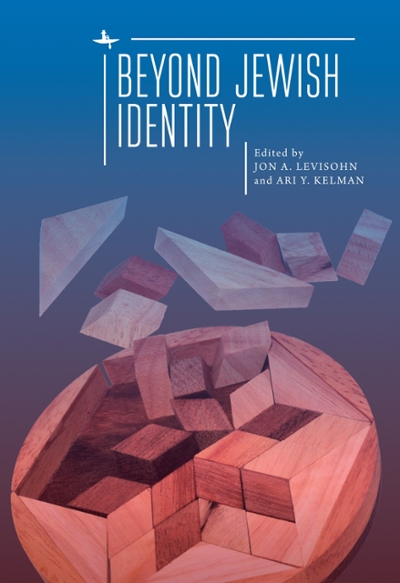Rethinking Jewish Identity and Education

The edited volume that emerged from the 2014 Mandel Center conference, titled Beyond Jewish Identity: Rethinking Concepts and Imagining Alternatives, edited by Jon A. Levisohn and Ari Y. Kelman, is now available for free download via Open Access.
In 2014 the Mandel Center convened over 65 educators and academics for a 2-day conference. This PRX podcast captures the initial conference conversation to “rethink” Jewish identity. Read the podcast transcript.
The concept of “Jewish identity” has been fundamental to post-war policy discourse and scholarship on Jewish education. With the possible exception of “continuity,” identity (and the attendant fears of its disappearance or weakening) has driven more philanthropic initiatives and educational policy than any other single concept.
Yet recent research has exposed the problematic nature of this concept. The combination of strong identity and low engagement, as demonstrated by the recent Pew Report, suggests that the very concept of Jewish identity can no longer shoulder the burden of Jewish educational efforts. The time has come to reconsider the notion of “identity” as the desired outcome of Jewish education.
Standard uses of “identity” by Jewish educators and policy-makers fail to capture the complex ways in which people understand their Jewish commitments, engage with Jewish communities, and enact Jewish practices. Approaching identity as an outcome offers a mismatched measure of Jewish education and poorly describes the various and shifting ways in which people live their Jewish lives.

The resulting book, published in 2019 and available from Academic Studies Press, Beyond Jewish Identity: Rethinking Concepts and Imagining Alternatives (eds. Ari Y. Kelman and Jon A. Levisohn), explores such questions as:
-
What does it mean to learn to inhabit or embody an identity or identities? What do we know about the ways that contemporary Jews do so?
-
Where does the language of “Jewish identity” come from, when, and why? What work does it do for those who use it? What kind of educational efforts does it promote, and what does it inhibit?
-
To the extent that the construct of “Jewish identity” no longer satisfies us, what alternatives are available — especially in conceptualizing the desirable outcomes of Jewish education?
“Beyond Jewish Identity” Table of Contents
-
“Introduction” — Jon A. Levisohn and Ari Y. Kelman
-
“Taking Jewish Identity Metaphors Literally” — Eli Gottlieb
-
“You are Jewish If You Want to Be: The Limits of Identity in a World of Multiple Religious Practices” — Samira Mehta
-
“On the Origins and Persistence of the Jewish Identity Industry in Jewish Education” — Jonathan Krasner
-
“Identity and Crisis: The Origins of Identity as an Educational Outcome” — Ari Y. Kelman
-
“Regarding the ‘Real’ Jew: Authenticity Anxieties in Contemporary Polish-Jewish Identity Narratives” — Katka Reszke
-
“Re-Thinking American Jewish Zionist Identity: A Case for Post-Zionism in the Diaspora (Based on the Writings of Menachem Froman)” — Shaul Magid
-
“Jewish Educators Don’t Make Jews: A Sociological Reality Check about Jewish Identity Work” — Tali Zelkowicz
-
“Beyond Language Proficiency: Fostering Metalinguistic Communities in Jewish Educational Settings” — Sarah Bunin Benor and Netta Avineri
-
“Where is the Next Soviet Jewry Movement? How Identity Education Forgot the Lessons That Jewish Activism Taught Us” — Shaul Kelner
-
“Jewish Education as Initiation into the Practices of Jewishness” — Jon A. Levisohn
-
“Jewish Sensibilities: Toward a New Language for Educational Goal-Setting” — Lee Moore and Jonathan Woocher
This project emerged from the conference on “Rethinking Jewish Identity and Jewish Education,” held at Brandeis on March 30-31, 2014.